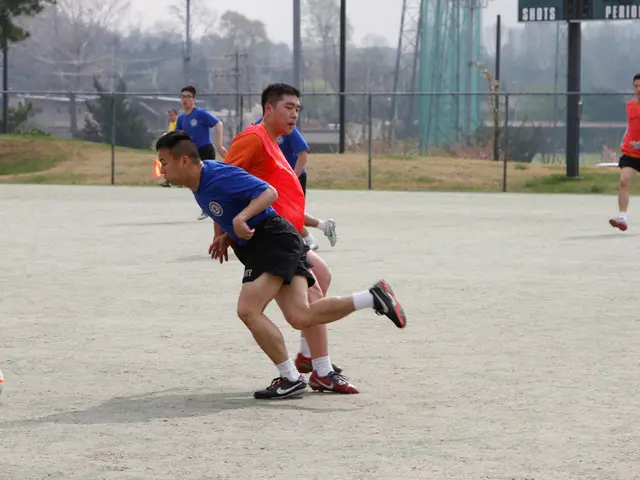Connection, Psychology, Video Games: exploring links, resilience, and mental health benefits
Video Games as a Transformative Force in Modern Psychology and Life
Video games are increasingly being recognised for their potential to positively impact various aspects of our lives, particularly in the realms of identity formation, emotional well-being, and cognitive development.
Identity Formation
One of the key ways video games facilitate identity formation is by providing a safe space for players to explore roles, narratives, and self-expression. Research shows that gaming supports self-acceptance and reflection, helping players experiment with aspects of their identity, promoting self-understanding and social-emotional learning (SEL).
Emotional Well-being
Games can enhance emotional regulation, resilience, and mood. For instance, the Brain Agents game, used in a U.S. study, improved social-emotional skills, such as coping and resilience, particularly in younger and marginalized children. Esports and gaming offer stress relief by providing a mental break from everyday pressures when balanced properly. Positive gaming experiences contribute to affective well-being and emotional intelligence.
Cognitive Development
Video games improve cognitive abilities such as attention, working memory, spatial skills, flexible thinking, and response time. Competitive games like League of Legends and Counter-Strike require rapid information processing and strategic decision-making, enhancing working memory and spatial awareness. A study by the Karolinska Institute found that gaming increased children's IQ by an average of 2.5 points over two years, improving self-control, visual-spatial processing, and cognitive flexibility.
Examples of These Effects
- The Brain Agents game, a trauma-informed SEL game, enhanced resilience and coping skills in school children, particularly those exposed to adversity.
- Esports titles like League of Legends and Counter-Strike improve cognitive skills through demanding decision-making and strategy under pressure.
- The Karolinska Institute’s longitudinal study linked video game play to measurable IQ gains in children.
Transformative Stories
Stories like that of Mats Steen, a young Norwegian with Duchenne muscular dystrophy, highlight the transformative power of video games. Mats found solace and connection in the video game World of Warcraft, where he could lead adventures and build relationships under his avatar Ibelin. After his passing, his online friends shared stories of how he had supported them emotionally, changing his parents' perception of his time spent playing and demonstrating the potential for virtual communities to be supportive and inclusive.
A Holistic Approach to Well-being
Modern consoles like the Nintendo Switch Lite offer a diverse catalog of games that promote well-being, from adventure titles to relaxing games adapted for all ages. Titles like Stardew Valley encourage calm and creativity, while others like Ring Fit Adventure integrate physical activity and mindfulness, promoting a holistic approach to well-being. Games like Tetris Effect invite players to focus on the present moment, reducing anxiety and increasing emotional awareness.
The Key to Transformation
The key to harnessing the transformative potential of video games is using them with awareness, balance, and openness. Whether it's facing emotional challenges, building meaningful relationships, or disconnecting from daily stress, video games are playing a valuable role in modern psychology and our lives. They are becoming powerful tools for psychological and social well-being, teaching resilience, connection, and growth. Consoles like the Nintendo Switch Lite make the positive impact of video games more accessible, democratizing their benefits and allowing people from different backgrounds to find benefits in their use.
- Video games can foster personal growth by allowing players to explore roles and narratives, promoting self-understanding and social-emotional learning (SEL).
- Games can improve mental well-being by enhancing emotional regulation, resilience, and mood.
- Cognitive development can be enhanced through video games as they improve attention, working memory, spatial skills, flexible thinking, and response time.
- Esports and gaming offer stress relief, providing a mental break from daily pressures when balanced properly.
- The Brain Agents game, a trauma-informed SEL game, enhances resilience and coping skills, particularly in vulnerable populations.
- Esports titles like League of Legends and Counter-Strike improve cognitive skills through demanding decision-making and strategy under pressure.
- The Karolinska Institute’s study found video game play linked to measurable IQ gains in children, improving self-control, visual-spatial processing, and cognitive flexibility.
- Stories like that of Mats Steen demonstrate the transformative power of video games, providing solace, connection, and emotional support.
- Modern consoles offer a diverse catalog of games promoting well-being, from adventure titles to relaxing games suited for all ages.
- Titles like Stardew Valley encourage calm and creativity, while Ring Fit Adventure integrates physical activity and mindfulness.
- Tetris Effect invites players to focus on the present moment, reducing anxiety and increasing emotional awareness.
- Harnessing the transformative potential of video games requires awareness, balance, and openness.
- Video games can help confront emotional challenges and build meaningful relationships.
- They can also provide a valuable role in disconnecting from daily stress.
- Video games are becoming powerful tools for psychological and social well-being.
- They can teach resilience, connection, and personal growth.
- Consoles like the Nintendo Switch Lite make the positive impact of video games more accessible to people from different backgrounds.
- Video games are increasingly recognized for their potential in addressing mental-health issues and chronic diseases, such as chronic pain and depression.
- Video games have been used as therapies and treatments for medical conditions like autism and ADHD.
- Respiratory conditions like asthma and chronic obstructive pulmonary disease (COPD) can be managed through gaming-based breathing exercises.
- Fitness and exercise can be elevated by integrating gaming elements, like gamification, wearables, and virtual reality (VR).
- Autoimmune disorders like rheumatoid arthritis can benefit from games that stimulate the mind and reduce stress.
- Climate change can be addressed through games that teach about environmental science, sustainability, and conservation.
- Manufacturing industries can embrace game design principles for continuous improvement, quality assurance, and employee training.
- The medical field can leverage game technology for simulation-based training, minimizing surgical errors and enhancing patient care.
- Mental-health therapies and treatments can be enhanced by incorporating digital platforms, virtual reality, and artificial intelligence (AI).
- Cardiovascular health can be improved through games that encourage physical activity and active play.
- Industry can harness the power of gaming for leadership development, team-building, and skill-training.
- Smart home devices and technologies can be designed to promote healthy lifestyle practices, such as tracking nutrition, encouraging exercise, and monitoring mental health.





